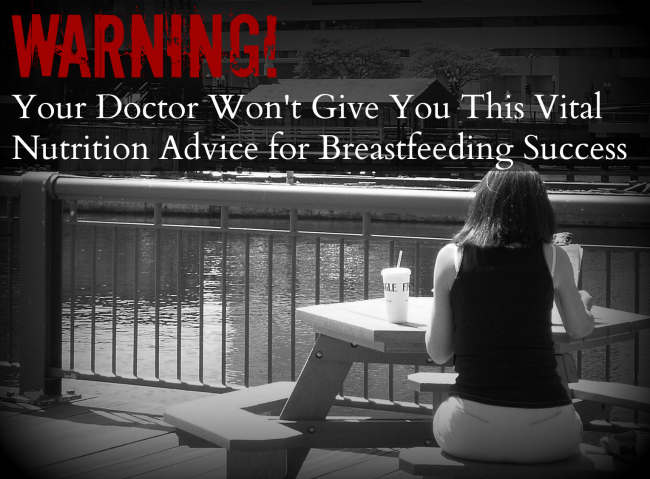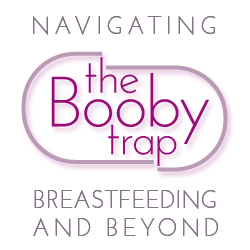This nutrition section is going to be a bit different from everything you’ve heard about breastfeeding. In this series we’ve learned about why breastfeeding is best for both baby and mom. Now, I’m going to be looking at what’s critical for growing a human brain, and how moms can influence not only her health, but her baby’s health, just through diet.

My first child was unable to nurse, and I exclusively pumped for her for fourteen months. I required the support of pharmaceutical galactagogues (a medication to support lactation) to establish and maintain my supply. My second child was able to nurse, with the support of pharmaceutical galactagogues. Eventually I was able to eliminate them after I changed my diet. I’ve had success maintaining my nursing relationship with my nursling for almost a year without galactagogues, and my nursling is only nursing once a day. I’m excited to share with you how nutrition impacts the breastfeeding relationship.
Breastfeeding Nutrition and Your Brain
Your brain and your baby’s brain are living pharmaceutical manufacturers. How and what you feed it determine if that pharmaceutical manufacturer is working properly to both grow and sustain a human brain. Why is this important to a nursing mom? The hormone that supports lactation, prolactin, is made in your brain and is usually released between midnight and 3 am.
For a more thorough overview of the hormone cascade needed to actually make prolactin, read this post by Dr. Jack Kruse. Knowing how prolactin is made is key to understanding the nutrients you need as a mom. These hormones are responsible for making your milk and also help you stay healthy so you can care for your baby.
What Nutrients are Critical to Grow the Human Brain?
There are some amazing researchers who’ve pinpointed the exact combination of nutrients we need, allowing us to develop the large brains we carry around in our head. The leading expert in brain development is Dr. Stephen Cunnane. In a 2010 interview he highlighted the key nutrients needed for human brain development.
According to Dr. Cunnane, DHA, in combination with Iodine, Selenium, Zinc and other nutrients, is essential to not only grow a human brain, but also prevents degeneration. Dr. Kruse also breaks down the essential nutrients that are needed (here & here).
Where are these essential nutrients found in one perfect package? Seafood. Dr. Kruse has provided his version of a food pyramid called Epi-Paleo Rx. Just like other paleo or primal ways of eating…
- Skip the grains
- Eat lots of good fats
- Plenty of proteins
- Seasonal fruits and vegetables
- Focus on seafood being your primary protein source
How does eating seafood or an epi-paleo diet help you make milk? The essential nutrients we eat turn on the pharmaceutical manufacturing plant in our brains. You make leptin and melotonin which leads to the production of prolactin, which in turn impacts your milk supply. A nursing mom wants her prolactin to be produced at the right time and place in the hormone cycle.
What Else Can be Done to Support Milk Production?
Is there anything additional a mom can do besides eating an Epi-Paleo diet to ensure she produces prolactin at the right time? Yes, there are three things a nursing mom can do to support her prolactin production. The first is just as important as eating a proper diet.
1. Stop exposure to artificial light after sunset.
Being exposed to artificial light after sunset delays the release of two hormones: leptin and melatonin. These hormones tell your pituitary gland to produce prolactin. Prolactin is necessary for two distinct functions in your body. It helps make milk, and it helps your body repair itself while you sleep. When you limit your artificial light at night, you increase your body’s ability to make prolactin.
2. Time your meals correctly.
When you eat also impacts when you release leptin and melotonin.
- You should eat a high protein and high fat breakfast within 30 minutes of waking. This helps set your “circadian clock,” so you’re ready for the day.
- Eat lunch.
- Eat four hours prior to sleep. Your body not only needs four hours of darkness, but needs you to have eaten at least four hours prior to going to sleep for the hormone cascade to function properly.
As moms we all know how best laid plans might never come to fruition, so if you’re like me, getting dinner on the table by 7pm is a win. For more details on eating this way check out Dr Kruse’s Leptin Prescription.
I realize many of you reading this are asking the following question – how am I going to survive not eating after 7 pm? The key to that, ladies, is fat. Embrace butter, coconut oil, and bacon fat. They make everything taste so much better. Learn how to make bulletproof coffee or bulletproof tea. This is one of the easiest way to get the fat in your diet. In addition, use it when you cook.
3. Get yourself and your baby outside
The last and final thing you should do daily is get you and your baby outside. Ground yourself to the earth. Your brain senses time in both light and darkness as well as through the earth’s electromagnetic frequency. (Dr. Kruse goes into the specifics in here and here.)
Electromagnetic frequencies can throw off you’re internal clock when you’re not connected to the earth. It’s even more important than what you eat and paying attention to artificial light. Take time and get out side with your children, play with them, sit with them, and enjoy the beauty of nature. It all plays a roll in how we function as human beings.
I hope what I’ve learned can help others. I encourage you to question everything. Only when you question the status quo will you discover the truth. It took me almost 10 years to uncover why I had health problems, how those health problems impacted my nursing success, and to find doctors who were willing to teach me what I needed to know to help myself.
. . . .
We encourage you to submit any question you have about breastfeeding or topics you would like us to cover in this series. Leave a comment on any post in the series or submit your question/topic privately using this form.








love this post. I wish I had not been so aloof when I was struggling with my milk supply. it is so hard when you feel like you should be focusing on losing weight after birth when it is likely damaging your milk. I have never liked seafood, but oddly since dialing in the Paleo-ness of my lifestyle, it has become more and more appealing. Funny that.
Sharing with my readers.
LOVE this post. When I was pregnant and breastfeeding, we had seafood twice/week. One of my favorite recipes actually uses canned salmon and the recipe came from Keeper of the Home. I also primarily use butter, coconut oil, and olive oil in my cooking. When I cook bacon, I try to remember to reserve the fat, but often forget.
I like the advice on seafood and eating times, but no artificial light at night? Not sure how that would be possible.
Katie – its actually pretty easy. candles, red headlamps (while not ideal it does help us keep the artificial light to a minimum!) – we’ve turned this past winter in to an adventure – my kids love that the lights go out early, and we read by red headlamp or fire light
This is such important info. Thank you for sharing and for linking up at The Tuesday Baby Link Up!
I drink a small cup of Folgers coffee every morning and have been since my 3rd trimester. My daughter is now 5 months old so I assume she is used to my caffeine intake. I now want to try BP coffee but was worried of its effects. What is your opinion on BP coffee while nursing? Is it worth it, or should I just stick to my regular cup of joe?
Bulletproof coffee is just coffee with extra fats. There should be no negative effects to having that while you’re nursing as long as you’re not consuming large amounts of caffeine.